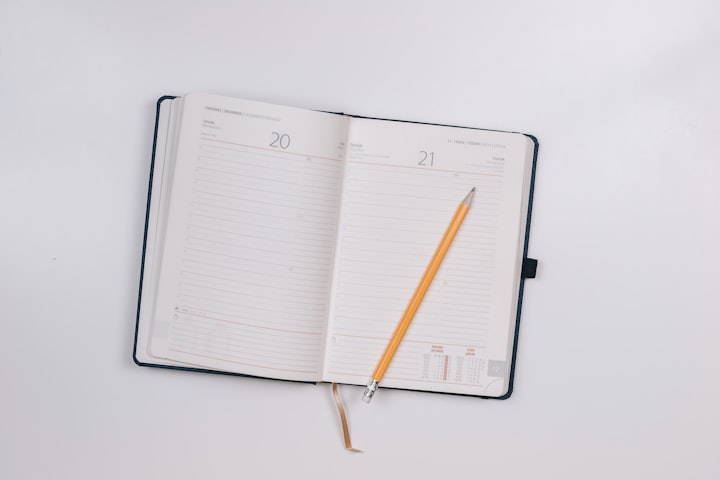Cleaning: My Dirty Secret
I don’t do drugs or gamble. But I clean. And it's a problem.

Who doesn’t love a stack of freshly laundered clothing or the delicate lines of a vacuum trail? Shiny surfaces germ-free environments and the lovely citrus scent of soaps and detergents; why don’t we clean more often? How could cleaning ever be a bad thing? How could it ever represent a problem or pose a threat to one’s well-being?
Well, if you’re anything like me, then the act of cleaning presents a slippery slope of addiction, compulsions, and instability.
Just a Hobby
Like any other addiction, it started off innocuous; the type of hobby others are envious of. It turns out that enjoying the “mundane” task that everyone puts off gives one a slight sense of pride.
It did not begin the way it is now. I saw some dust on the table and attacked it with Windex. My closet was stripped of all its clothes and then made whole again with the same clothes but this time, color-coordinated or sorted by category. It was simple and it made sense. It was healthy.
The feeling cleaning gave me was, at the risk of sounding dramatic, what I imagine certain drugs feel like; pure bliss and ecstasy. It gave me a sense of accomplishment, autonomy, and perhaps more importantly, control.
As time went on, I became more adventurous and creative with my cleaning: the grout in between kitchen tiles, the shelves of the fridge, and the water filter attached to the tap.
As it is always involved in just about everything, social media was incredibly helpful in encouraging my cleaning habits. Cleaning videos were all over my Instagram account and naturally, I saved them, liked them, and interacted with them; perpetuating the appearance of such videos on my feed. The more I saw, the more social media pushed them toward me, and the more I wanted to clean.
But, like any drug, what used to work to satisfy the “cleaning itch” in my brain changed and I was left to grapple with the effects of what was now becoming a problematic hobby.
Clean, Or Else…
Something had switched. I would sit down to watch YouTube or study or do anything besides cleaning and there was this uncomfortable, perhaps urge is not the right word, but rather, compulsion to clean.
It was odd, but identifiable; my fingers itching to feel the satisfying push of the vacuum plug into the outlet, my ears longing to hear the scrub from the sponge greeting the sink surface.
It was no longer simply a desire to clean as a desire can be ignored and subdued. The longer I sat, trying to focus on another task, the greater the gnawing feeling grew.
I would, of course, eventually succumb to the oppressive grips of the compulsion. My Mom would find me scrubbing the kitchen floor furiously at 1 am, pleading for me to sleep. However, despite her pleading and the upsettingly shocking look on her face, I was unable to sleep until the floors were in pristine condition. She was unable to understand why I wanted to, had to, clean. Quite frankly, it worried and perplexed her. And I too would be frightened if I saw my daughter be a slave to cleaning.
The mind is incredibly powerful and, as it turns out, self-destructive at times; longing to sabotage. I could not properly concentrate on myself, my school work, or my family. If I ignored the compulsion to clean (an impossible task), then the effects of my “negligence” to clean were exaggerated. I noticed “flaws” in my home that my family could not notice: “dust” on the counter or “streaks” in mirrors that needed to be shined and buffed.
The need to clean had taken over.
What Was the Trigger?
So, what makes a young girl with many pre-established hobbies suddenly spend hours cleaning? What causes someone who happily avoids chemical drugs and substances to turn to the act of cleaning, of all things? Let’s be honest, it’s kind of weird.
Well, there are three main things to discuss; the fact that it isn’t purely based on compulsion, the neuroscience and psychology behind it, and what truly caused it in the first place.
Firstly, while my addiction to cleaning may signal something deeper, it is truly enjoyable to me, despite my brain’s efforts to treat it as some sort of federally-mandated duty. That is precisely why I hope to fix my relationship with cleaning so I can enjoy it in a healthy manner.
Secondly, while my addiction may be a bit odd, it isn’t unheard of. In fact, the psychology behind it is researchable; we have studied it enough to know quite a bit about it. While I have not been diagnosed with OCD, I do believe I have it and one of the ways it manifests itself is the compulsion to clean. For the sake of explanation, I’ll discuss my cleaning addiction through the lens of the psychology behind OCD.
OCD, as defined by the National Institute of Mental Health, “is a common, chronic, and long-lasting disorder in which a person has uncontrollable, reoccurring thoughts (“obsessions”) and/or behaviors (“compulsions”) that he or she feels the urge to repeat over and over.”
Sound complicated? It isn’t too complicated as it is complex. OCD and drug addiction often affect the same parts of the brain. This may be best explained by a University of Cambridge report that states that “[c]ompulsivity in OCD and addiction may in part be explained by dysfunctional brain reward systems…” and found that patients with OCD “displayed attenuated reward anticipation activity in the ventral striatum compared to controls.”
To put it simply, the brain latches on to the feeling of accomplishment and the other good feelings that come with cleaning and drives the mind to chase that feeling over and over again.
There is something within the discussion of my cleaning of addiction of stunning pertinence: it was exacerbated when there were other stressors in my life. I noticed that if I was feeling overwhelmed with assignments or feeling as if I were fighting with time, the compulsion to clean got worse and the feeling after the cleaning was more rewarding and more intense. Where before cleaning I felt overwhelmed, and out of control, after cleaning, I felt in control.
Changing my surroundings and cleaning them made me feel in control of my life; an addicting feeling as a busy college student juggling more roles.
What’s Next For Me and My Cleaning Supplies
I’m not a psychologist, but I’m sane enough to recognize that spending hours succumbing to an addiction, whether with needles, pills, or a sponge, can’t be healthy.
Cleaning isn’t inherently bad, in fact, it truly is a good hobby to have. I certainly can’t “quit cold turkey” and stop cleaning altogether as that would pose a host of other problems (no thanks; gross). So, what’s a girl whose brain is latched onto cleaning supposed to do?
I’m going to try and find balance, as hard as that may be. And that doesn’t mean taking things off my list to clean or setting up a timer alerting me when to stop cleaning, but rather, finding balance in my life. I hope to find other outlets and coping mechanisms in order to feel more in control of my life so that I do not have to turn to my buddies Pine-Sol and Windex. I make it my aim to find ways to stop my brain from exploiting the chemical reward system deep inside my mind.
I’m not sure how long or exactly what else, that might take. But, one thing is for sure: now that I properly see the problem, I can’t help but look at sponges with both love and hate.
If you’re struggling with OCD or addiction, you aren’t alone and there are resources to help you.
Addiction Resources:
www.addictionhelp.com
OCD Resources:
www.sheppardpratt.org
About the Creator
Soha Sherwani
Hello everyone! You can find me @SherwaniSoha on Twitter and @SohaSherwani on Medium!
Thanks for reading!






Comments
There are no comments for this story
Be the first to respond and start the conversation.